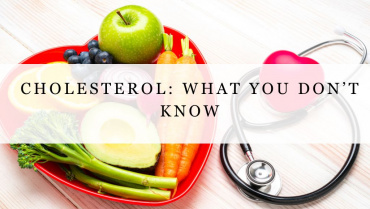Up to 12% of women experience PCOS during their reproductive years, sometimes beginning in their teens. It is often the cause of infertility, menstrual irregularities, acne, hirsutism (male pattern hair growth in females), and of course, ovaries with multiple cysts.
It can be confusing to have this condition because, despite the name, it’s not solely a reproductive illness. While it’s true that elevated testosterone often accompanies PCOS, it’s not considered to be the cause.
Instead, PCOS is a case of insulin resistance.
Insulin resistance means that the cells are no longer able to respond to insulin and use glucose effectively to produce energy. Hence, one of the first non- hormonal symptoms of PCOS is fatigue and belly fat since glucose in the blood can’t be absorbed into the cells to produce energy. Instead, the glucose goes right into fat storage.
The goal of dietary changes and supplement interventions is to improve insulin sensitivity and thereby control insulin levels. Measuring fasting insulin is critical to tracking changes in PCOS.
Here are a few general tips for improving PCOS:
- Avoid stress and extra obligations (I know this is tough in today’s overly busy world but I cannot stress enough about how important this is.)
- Avoid alcohol and smoking
- Exercise regularly: primarily aerobic and especially interval training
- Check vitamin D levels, which should be between 50 and 80 ng/ml
- Practice good sleep habits, meaning get between 8 to 9 hours each night.
Now for the dietary recommendations that are critical for reversing PCOS:
- Avoid white flour and all refined carbohydrates, including cereals and pasta.
- Sugar is poison for this condition, so avoid it at all cost.
- Choose lean, clean quality protein at each meal such as chicken breast, turkey breast, lean beef, fish (especially salmon and sardines), eggs, and high-quality protein powders.
- Include a balance of omega-3 fatty acids and omega nine fatty acids such as olive oil, olives, almonds, hazelnuts, avocados.
- Avoid hydrogenated vegetable oil such as those found in processed foods, crackers, snack foods, and fried food.
- Cook with olive oil at low heat or with avocado or coconut oil at high temperatures.
- Snack on vegetables and small amounts of nuts, olives, or avocado.-Eat seven servings of fresh vegetables daily; half of those or more should be raw.
- Limit fruit to two servings each day and choose low sugar fruit such as berries, Granny Smith apples, and kiwi.
For PCOS menu planning suggestions, download this PDF.
Contact us to set up an appointment and let us help you determine the supplements that are best for targeting PCOS.
BeWell!






Add Comment